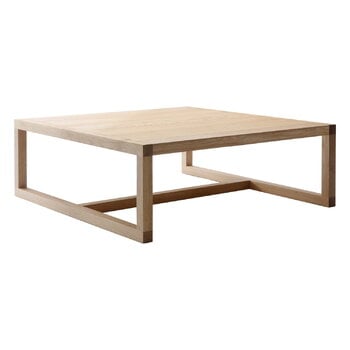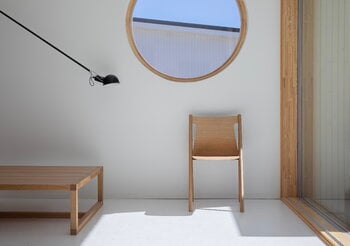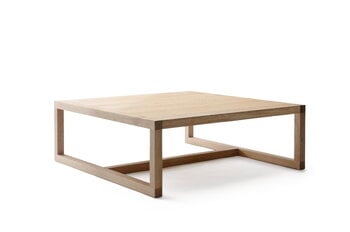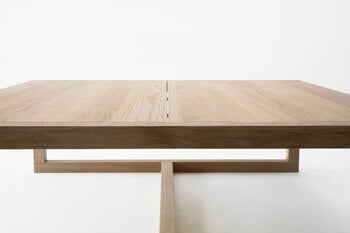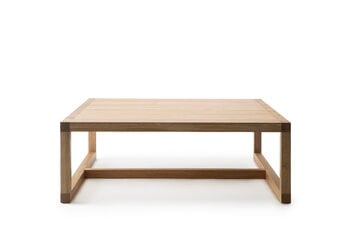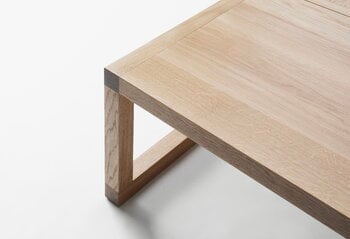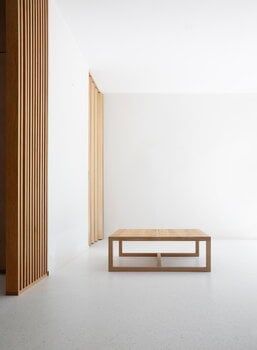Nikari’s Frame Low coffee table is a simple yet eye-catching piece of furniture that is equally suitable for dining and office use. The Frame table was designed by British architect John Pawson, who originally developed the prototype of the table for his own farm in England. The robust solid wood table is designed to withstand life and use for years to come, and its geometric shape creates an interesting dialogue with the surrounding space and any kind of furniture. This Frame Low 2/4 coffee table does not have a shelf, but the table is also available with a half or full lower shelf.
Nikari products are made in Finland using only certified wood.
